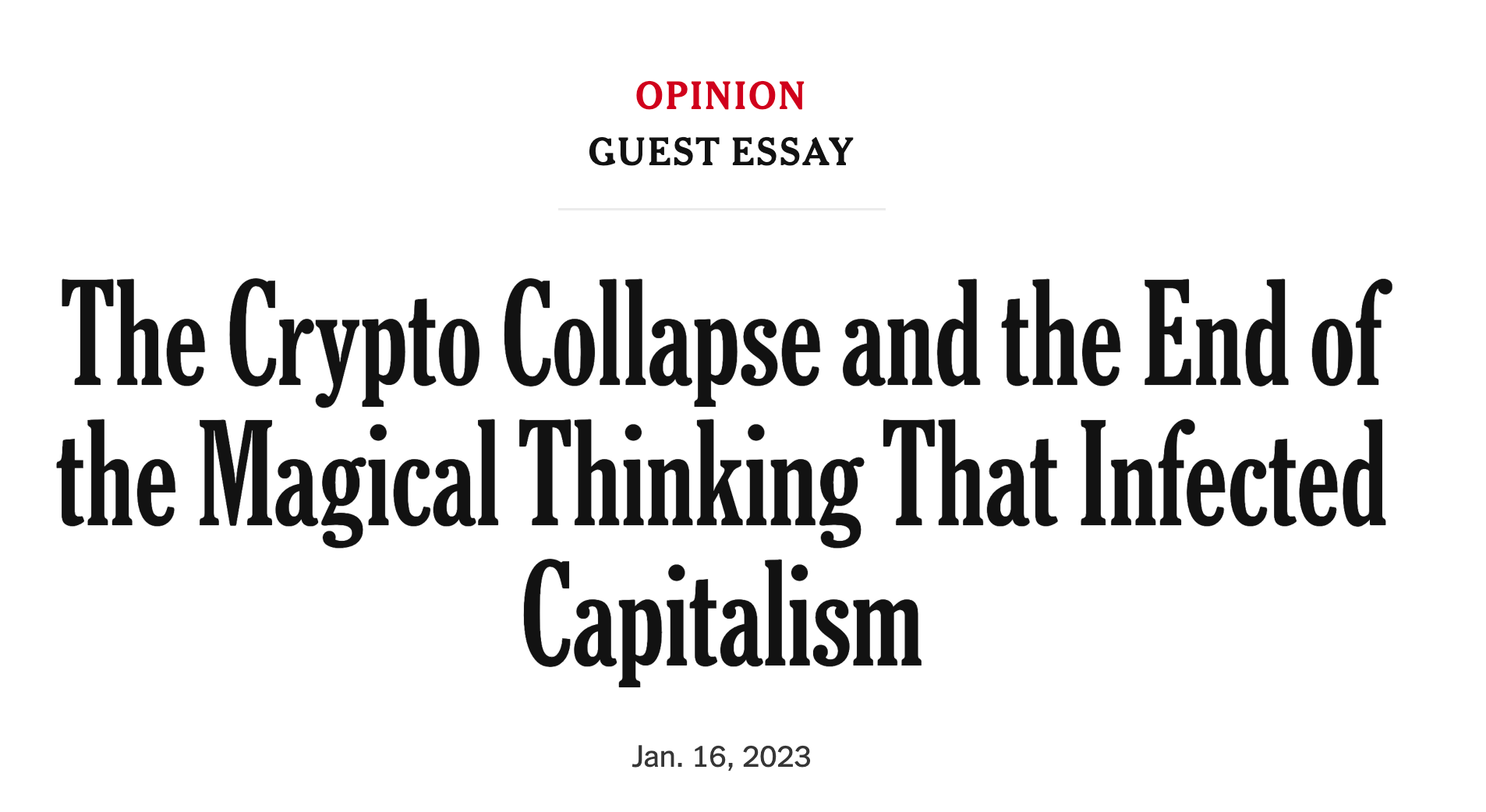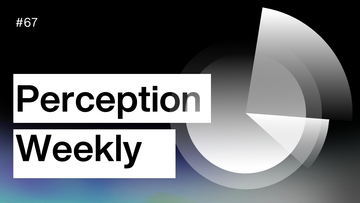Two years ago on this day, the New York Times graced us with a doozy of an article titled “The Crypto Collapse and the End of the Magical Thinking That Infected Capitalism.”
A pretty dramatic opinion piece by Mihir A. Desai, a professor at Harvard Business School and Harvard Law School.
A headline so dramatic, it could double as the title of a dystopian novel.
Except, spoiler alert: nothing actually collapsed.
Today, in 2025, Bitcoiners are grinning ear to ear while the finance professor-turned-doomsday prophet behind this piece has probably doubled down on his skepticism.
Let’s break the article down:
The Great “Magical Thinking” Epidemic
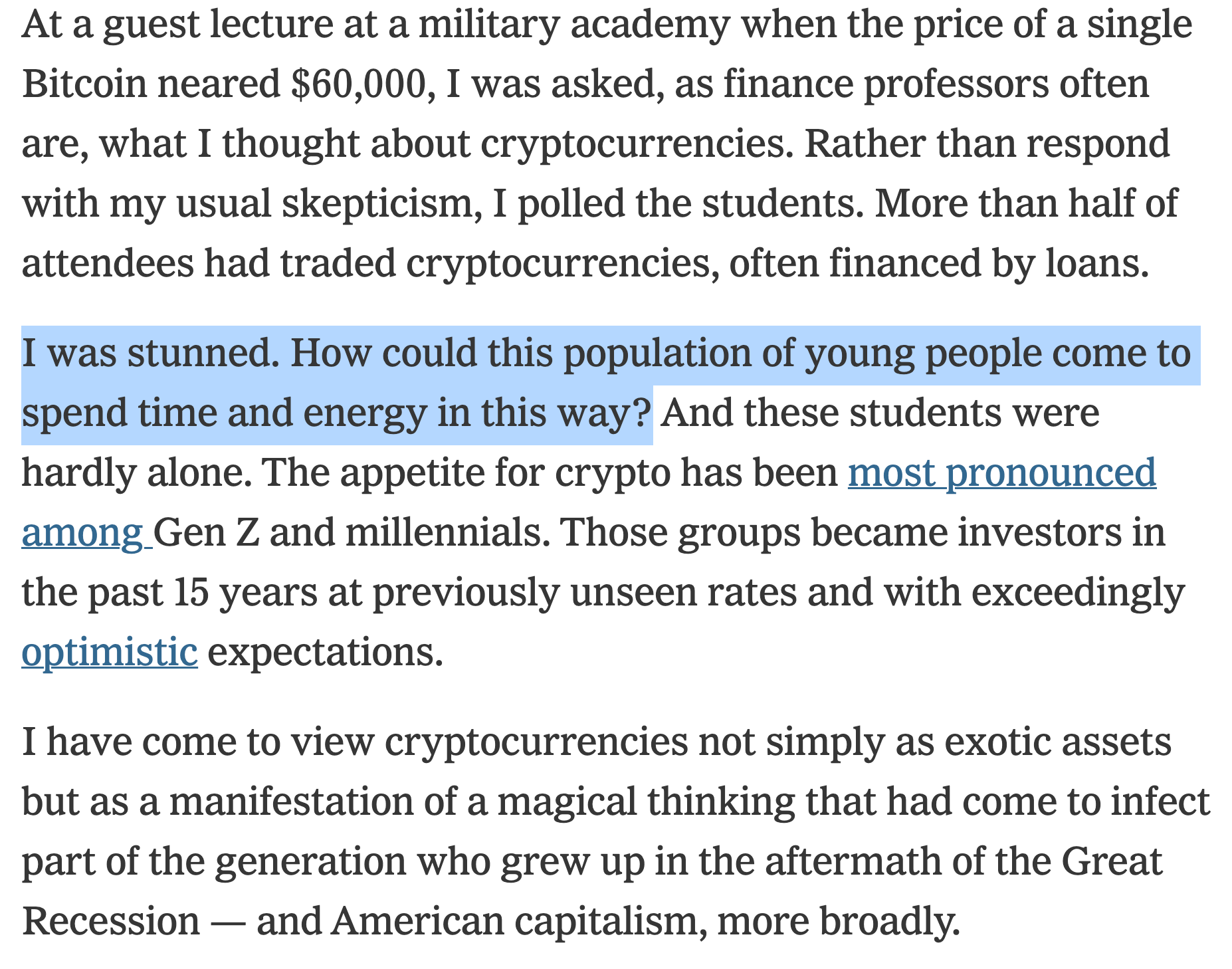
Apparently, capitalism wasn’t just capitalism anymore; it had been infected—like a bad flu—by “magical thinking.”
The professor (who obviously moonlights as a capitalist critic) stopped just short of blaming Bitcoin for global warming and police brutality.
Yet somehow, the “infection” coincided with young people finding alternative ways to build wealth.
Funny how that works.
The revelation that the professor had at this Military Academy I think deserves a standing ovation for its sheer obliviousness:
“I polled the students. More than half of attendees had traded cryptocurrencies, often financed by loans. I was stunned. How could this population of young people come to spend time and energy in this way?”
How could they?! Imagine daring to invest in emerging technology and finance during your youth instead of, I don’t know, buying bonds?
Truly shocking behavior from a generation saddled with student debt and rising living costs.
A Decade of Painful Unwinding

If by “painful unwinding” you mean Bitcoin correcting itself and continuing its upward trend, sure!
Two years later, those who held on are very much in the green.
But hey, the doom-and-gloom aesthetic was trendy in 2023.
Who could resist?
Certainly not Professor Desai.
Gatekeeping 101

Translation: “Leave the economy to the gatekeepers, kids. This is our playground!”
This from a economy professor who openly despises capitalism but has no problem defending its most entrenched pillars—banks and centralized institutions.
The cognitive dissonance here… magical.
Tell Me You’re a Communist Without Telling Me
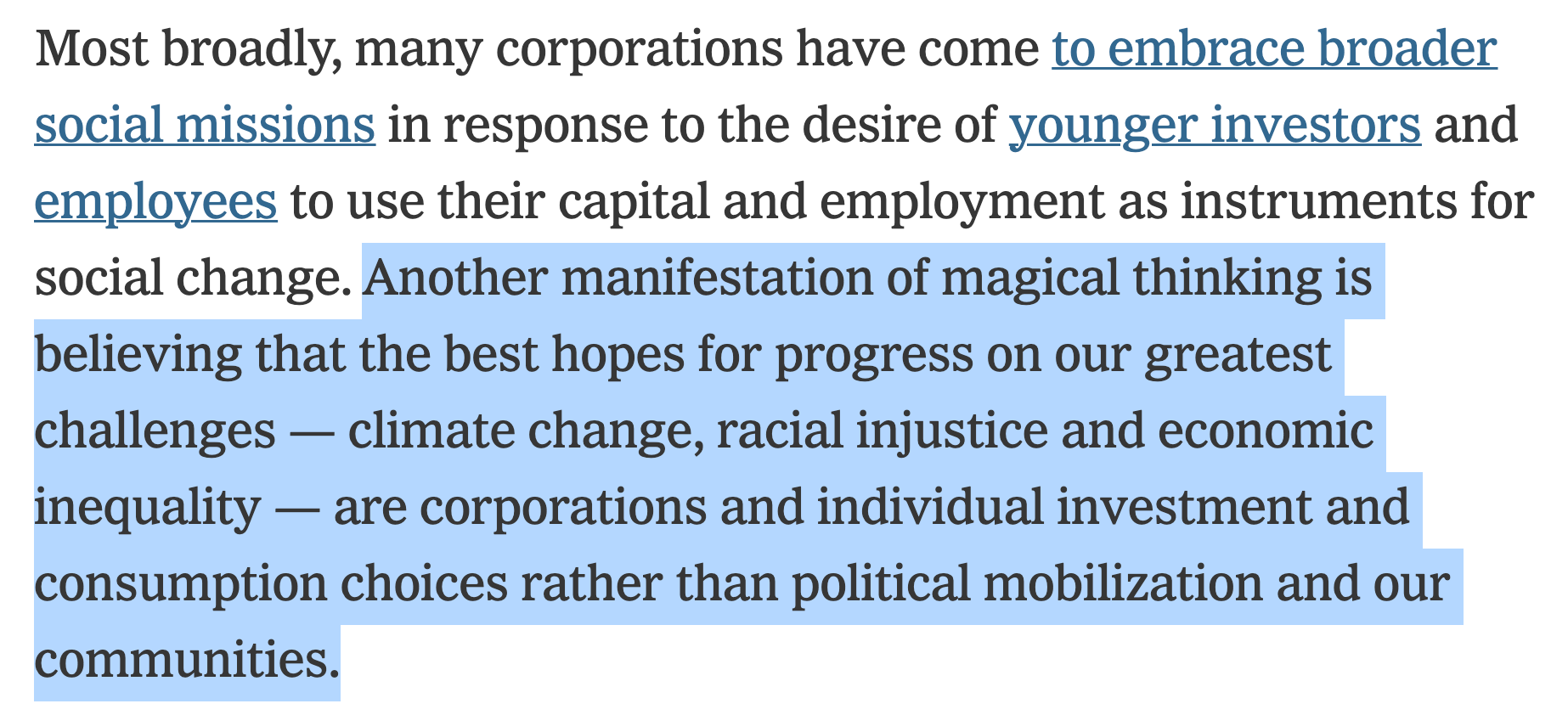
And there it is.
The subtle suggestion that innovation and entrepreneurship are less effective than top-down state control.
Yes, clearly what we need to address modern challenges is more bureaucracy, not innovations.
Sure thing, comrade.
The Cry for Relevance
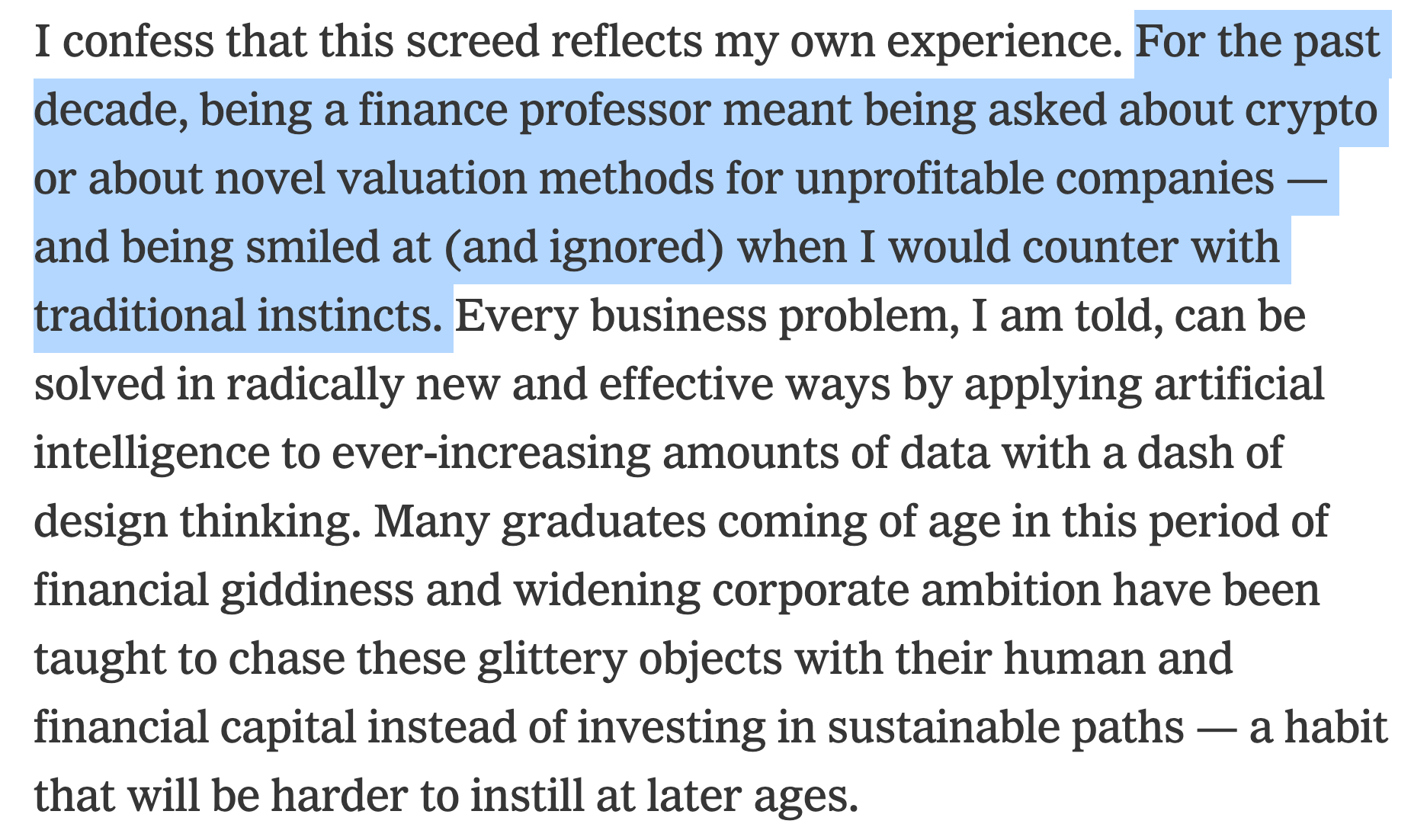
Yes.
The professor’s true gripe emerges.
It’s not that crypto is “magical thinking.”
It’s that people dared to question his traditional instincts!
The horror of students and investors looking beyond his textbook theories to something as wild as… innovation.
Final Thoughts
Reading this article two years later feels like discovering a vintage doomsday pamphlet.
The professor wanted so badly to be right about the “end of magical thinking,” but instead, Bitcoin kept evolving, proving once again what we all know:
That dismissing innovation is the fastest way to become a thing of the past.
